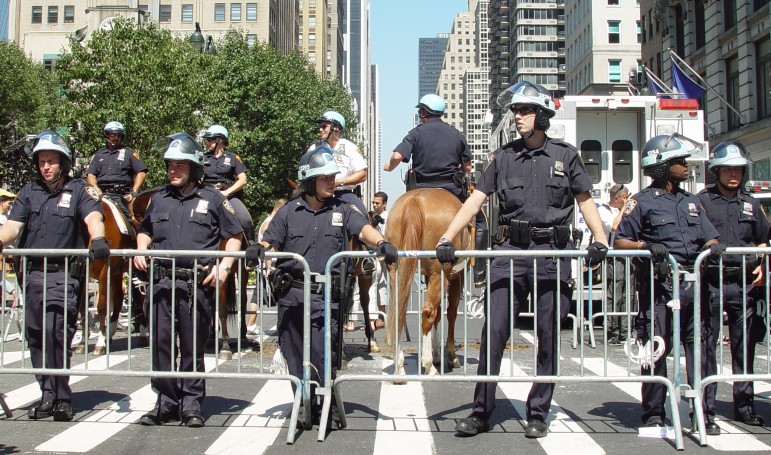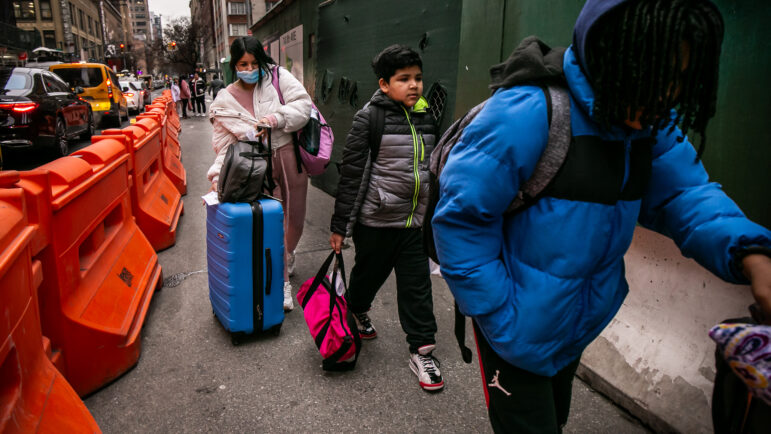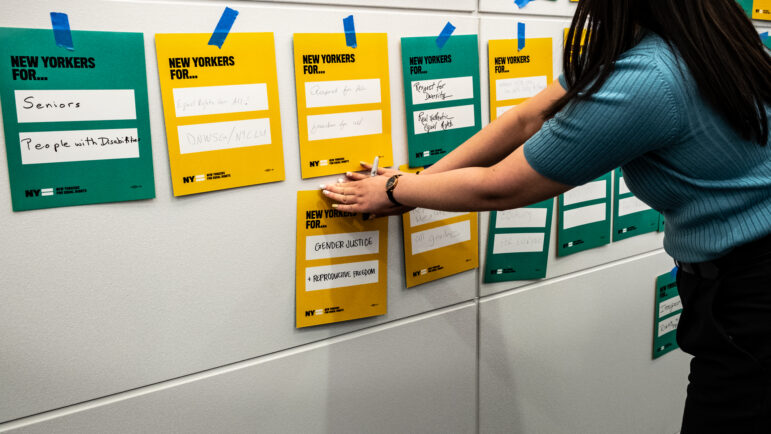
Jonathan McIntosh
The NYPD has a larger uniformed headcount than the armed forces of 95 countries.
2016 is the year of police reform. Or is it?
After nearly a year of meetings with the mayor’s office and the police department, the City Council recently unveiled a package of bills that are said to lessen the impact of Broken Windows policing. The announcement came as the massive street protests that shut down large swaths of the city last winter have, for the most part, died down. For activists demanding deep changes to policing, the City Council should not be confused with a vehicle for true reform.
The Council’s Criminal Justice Reform Act offers mild court reforms—but doesn’t propose any reforms of the police whose arrests brought people to the city’s courts 280,000 times last year. If the bills are passed, cops will be nudged to dole out civil summonses rather than criminal summonses and arrests. They will, however, still police these behaviors, leaving the basic tenets of Broken Windows untouched. Other key Broken Windows “offenses” (fare-beating, selling loose cigarettes, being homeless, etc) won’t be affected at all.
NYPD commissioner Bill Bratton, who famously implemented Broken Windows back in the 90’s, tellingly backs the bills but reserves the right for his officers to arrest and criminally summons when they see fit. In fact it’s that discretion, which officers have theoretically always enjoyed (though a quota system influences even that), that Queens councilmember Rory Lancman called “a recipe for disaster” even as he co-sponsors the bills.
What are the politics here? Has the Council seen the light and recognized the moral bankruptcy of Broken Windows? Hardly.

No Backspace is City Limits' new blog featuring a recurring cast of opinion writers passionate about New York people, policies and politics. Click here to read more..
Council Speaker Melissa Mark-Viverito, who is driving the legislation, reportedly has stalled other pieces of police reform as she rules the Council with an iron fist and works closely with the police department. This hasn’t stopped her from positioning herself as a leader on criminal justice reform, a constant theme at her second State of the City speech last week in the Bronx. Passage of the CJR Act would provide a feather in her cap as her own national political aspirations grow. But is that a good thing for the grassroots activists and organizers now fading into the background? This is, after all, the same speaker who pushed to increase the NYPD headcount despite widespread opposition.
We already have the example of Council-led reforms that originated before Mayor Bill de Blasio’s election and haven’t gone very far. The Community Safety Act, passed in 2013, created the Office of the Inspector General to oversee the NYPD. So far IG Philip Eure has released a few reports but has proved ineffectual. Another facet of the CSA was to expand the ability of New Yorkers to legally protect themselves from racial discrimination by the police. But as the city’s corporation counsel Zachary Carter has noted, those new laws have gone largely unused. What will a new round of bills, supported by the NYPD, provide?
If passed, they would offer a spike-the-football political opportunity to legislators to signal that they have heeded calls for reform. The police department will say that it has cooperated. And the mayor, predictably, will proudly proclaim this as an example of Broken Windows “evolving.”
But the scope of the NYPD’s abuse and power is beyond a single reform, or even a set of reforms. A powerful recent ProPublica/Daily News investigation that exposed the outrageous police use of little-known “Nuisance Abatement Laws” revealed a problem few even knew existed. Reports confirming that the NYPD is secretly tracking thousands of New Yorkers (sans warrants) through their cellphones reiterates the sense that the police department is operating virtually unchecked. A class action lawsuit is gaining steam as it alleges that the police department has destroyed documents and CompStat reports that could expose an illegal quota system. And of course Bratton continues to announce that the era of “Predictive Policing” is upon us.
If one takes a step back and makes a sober assessment of police power, mild reforms are little more than band-aids on a cancerous tumor—cheap band-aids that don’t stick, at that.
To fully grasp the frustrating politics of “police reform” look no further than issue of Stop and Frisk. The statistics indicating a remarkable drop in racially-disparate police stops are questionable—and perhaps a lie. The court-ordered monitor mandated by the federal Stop and Frisk lawsuit, Floyd v. City of New York, has again indicated that cops are under-reporting stops, in some cases reporting only a fraction of “Terry stops,” as they’re often called. Despite those doubts, the alleged drop in stops is often the basis for the mayor’s office to pound the table and insist that the police department has indeed been reformed. You’d be hard-pressed to find a City Hall press release or de Blasio statement on policing which doesn’t tout a dramatic drop in reported stops.
There is a lesson here for activists: Lost in all the number-crunching around a reform agenda that can be limited to whatever data the police choose to report (or not report), there are more important metrics that can help reformers begin to bring the police department under control.
The amount of money we spend on policing should be the clear target for those looking to rein in the police. Thanks to the addition of nearly 1,300 extra cops in the budget, the known NYPD has grown to flirt with a $5 billion-dollar yearly price-tag. And there are, of course, other resources and expenses: training, new cars, body cameras, smartphones (funded by the Manhattan DA’s office). More cops and more resources for cops come at political costs that can mean less or limited non-police resources that can improve our quality of life and even public safety.
Commissioner Bratton has said de Blasio is the most generous mayor he’s ever worked for, giving him “everything he wanted.” It’s time to seriously rethink that approach.









2 thoughts on “No Backspace:
Want Real NYPD Reform? Cut its $4.9 Billion Budget”
if black people committed crimes at the same rate as white people we could cut the police force a lot and still have enough to protect us…..
Morons. Cut the NYPD budget and 911 response times will suffer.